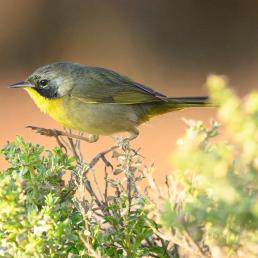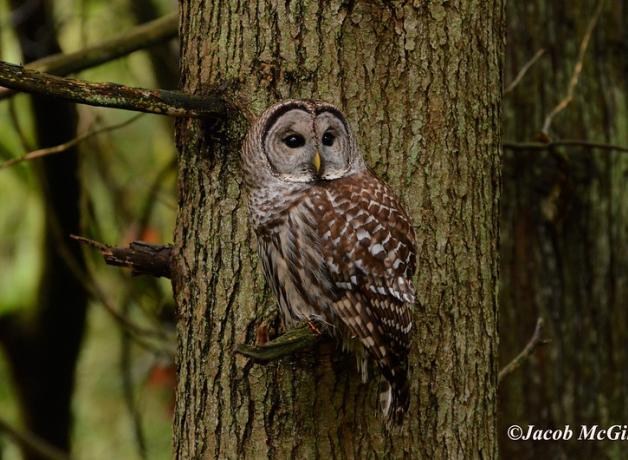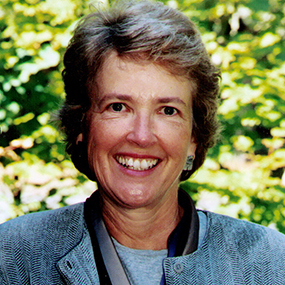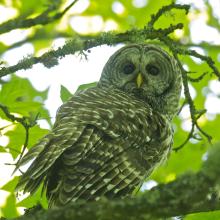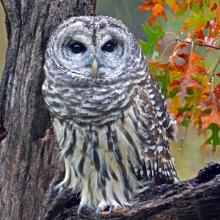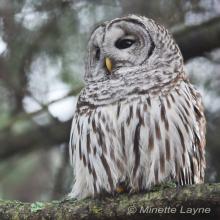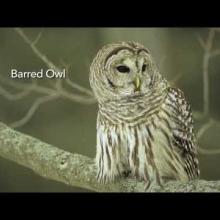

Join BirdNote tomorrow, November 30th!
Illustrator David Sibley and actor H. Jon Benjamin will face off in the bird illustration battle of the century during BirdNote's Year-end Celebration and Auction!
Barred Owls are very territorial, and they don't migrate. Solitary calls from a male in early spring probably mean that he has not attracted a mate. In May and June, he continues to hoot, though less frequently. By summer, breeding season has passed. Maybe this solitary Barred Owl is what some scientists call a "non-breeding floater". Perhaps his patch of woods is just too small to host a pair of owls year round.
BirdNote®
The Barred Owl Calls
Written by Chris Peterson
This is BirdNote!
[Two-phased hoot of a Barred Owl]
I’ve been hearing an owl, a Barred Owl, much of this year and last. In January, even though it was cold and dark, its call drew me outside. [Two-phased hoot of a Barred Owl]
I think it was the one I heard last year, because these large, gray-brown owls are very territorial, and they do not migrate. Both males and females make the signature nine-note hoot — “Who cooks for you? Who cooks for you-all?” [Two-phased hoot]
But throughout the winter, I heard only solitary calls. It was probably a male. If he had attracted a mate, I would have been hearing a duet like this, a caterwauling courtship that can sound downright peculiar. [Maniacal sound of Barred Owls in courtship]
One day in April I found him, being dive-bombed by crows while he tried to sleep in a deciduous tree. [A few crows mobbing] In May and June, he continued to hoot, ‘though less frequently. [Two-phased hoot]
Now in late summer, the breeding season has passed. What have I witnessed? Could this Barred Owl be what some scientists call a “non-breeding floater?” Is his patch of woods just too small to host a pair of owls year round?
When it comes to Barred Owls, there’s a lot more to the story. Plus, you can see a photo of one on our website, birdnote.org. I’m Mary McCann.
###
Bird sounds provided by The Macaulay Library at the Cornell Lab of Ornithology, Ithaca, New York. Recorded by G.A. Keller.
BirdNote’s theme music was composed and played by Nancy Rumbel and John Kessler.
Producer: John Kessler
Executive Producer: Chris Peterson
© 2015 Tune In to Nature.org August 2018 Narrator: Mary McCann
ID#080807BADOKPLU BADO-02b
